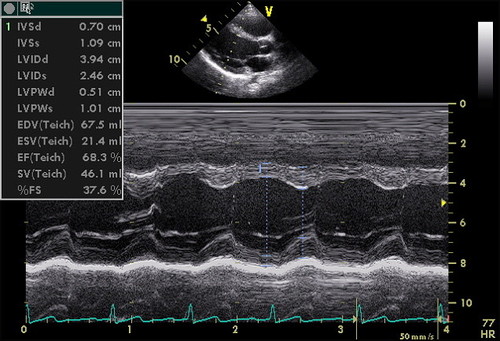Utromics’ first commercial product, EchoGo Core, was approved by the FDA and obtained a CE mark

Utromics’ first commercial product, EchoGo Core, was approved by the FDA and obtained a CE mark
Ultromics, a startup spun out of the University of Oxford to commercialize AI tech that can read echocardiograms, closed a $10 million financing round to accelerate the growth of its business.
Investors included the Mayo Clinic, which works in collaboration with Ultromics, as well as existing shareholders Oxford Sciences Innovation (OSI) and specialist healthcare investor Nina Capital.
“Mayo Clinic and Nina Capital bring a strong track record and deep expertise in the health-tech sector,” said Ross Upton, CEO and co-founder of Ultromics. “They will help our push into the US market and accelerate the development of new innovations and services.”
Listen to your heart
Ultromic’s first commercial product, EchoGo Core, uses machine learning to analyze echocardiograms in order to help diagnose heart disease. It was approved for use by the US Food and Drug Administration (FDA) in November.
The startup’s more advanced EchoGo Pro, aimed at early detection of heart disease, obtained a CE mark for use in Europe earlier this year, and is pending clearance by the FDA.
Ultromic’s devices can easily plug into hospital systems in use across the US and Europe.
The technology is finding applications related to the ongoing COVID-19 pandemic. Ultromics is working with several US-based clinics, using EchoGo Core to understand how COVID-19 attacks the heart.
The company has also developed a service called Catalyst, to use the EchoGo to accelerate clinical trials.
The AI systems support physicians by automating cardiac analysis, helping provide rapid results to improve care delivery and outcomes.
“Ultromics presents a unique application of artificial intelligence in medical diagnostics in that it is trained on an image of moving anatomy,” Marta-Gaia Zanchi of Nina Capital said.
The seed funding for Ultromics came from current investor OSI, an early-stage investment firm that specializes in fundamental technologies, in partnership with the University of Oxford.
About the Author(s)
You May Also Like


.jpg?width=700&auto=webp&quality=80&disable=upscale)
.jpg?width=700&auto=webp&quality=80&disable=upscale)
.jpg?width=700&auto=webp&quality=80&disable=upscale)
.jpg?width=300&auto=webp&quality=80&disable=upscale)
.jpg?width=300&auto=webp&quality=80&disable=upscale)
.jpg?width=300&auto=webp&quality=80&disable=upscale)

